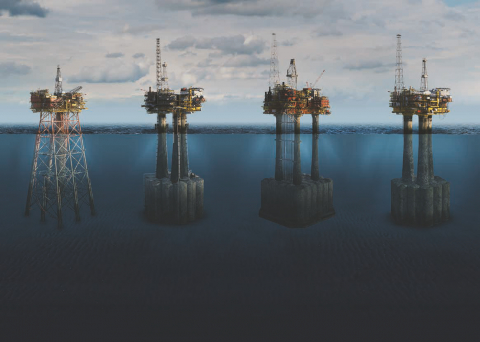Shell is planning to decommission the Brent oilfield, beginning with the disposal of the topside of the Brent Delta oil platform. This project has to be executed very carefully, when keeping in mind the Brent Spar issue of twenty years ago. This case was a painful lesson where emotional gut feelings overwhelmed rational decisions.
Brent Spar was an oil storage Buoy in the Atlantic Ocean operated by Shell UK. In the mid nineties the Brent Spar was considered of no further value. Shell considered two different options of disposal. The first option was to dismantle Brent Spar within a harbour, where some materials could be reused and other materials were disposed on land. The costs of this approach would have been forty billion pounds. The other option would have cost half of this number. Though Shell was forced to choose the first option. What was the second option and why would it be so undesirable to choose an option that was double the price? This option was to tow the buoy further away to more deep waters of the Atlantic and to let it sink with the help of explosives.
When reading this as a layman this option sounds much scarier and sounds like dumping your waste without taking responsibility for it. Funny thing is science proved that dismantling the platform on-shore was technologically more complex, resulting in higher health and safety risk for the workforce. Even environmentally speaking sinking would have a lower impact than on-shore dismantling. The reasoning behind this is that there was a chance that the buoy would fragmentize in shallow coastal water, while by sinking it would only have a confined impact in a deep-sea region. So sinking was proved to be a better option and the British government even supported this decision. Greenpeace however didn’t approve this solution. I can imagine that dumping your waste into sea as a better option then proper removal of your waste sounds very unnatural. With this emotion Greenpeace influenced the public, what resulted in a large boycott of Shell across Northern Europe. Finally Shell withdrew the plan of sinking Brent Spar and the final costs are estimated between the sixty and hundred billion pounds. This amount is with loss of sales included.
Personally I am thinking how such a rationally designed plan, with the right arguments could be ruined in an instant. This is a classical example that shows that people are not thinking rationally, but are led by their emotions. This has to be taken very seriously by operating companies. The Brent Spar case has been a lesson for Shell to listen to the public. I am wondering how this is tackled in the future with the total disposal of all the North Sea platforms. There is a nice plan for the topside parts of the oil platforms, but for the subsea-level concrete structures and the total pipeline network there is no plan. This infrastructure was never designed to be taken away. How is Shell and other O&G companies going to solve this and more importantly how are they going to communicate this with the public?
